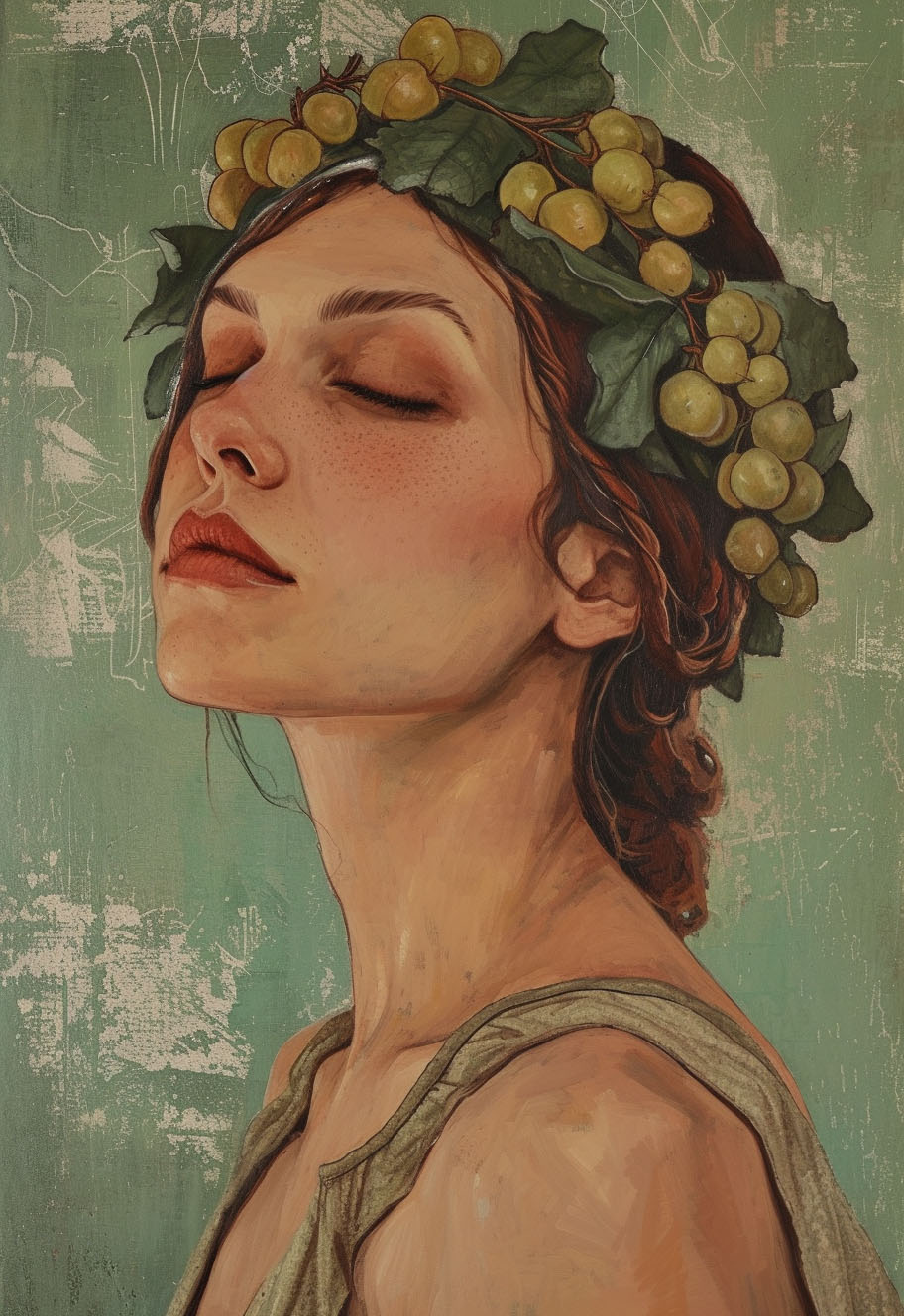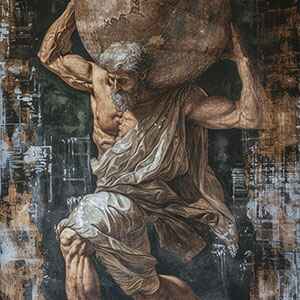
Parentage: Maia is the daughter of Atlas, a Titan who bears the heavens on his shoulders, and Pleione, an Oceanid nymph. The Pleiades, including Maia, were born on Mount Cyllene in Arcadia.
Sisters - The Pleiades: The Pleiades are a group of seven sisters: Maia, Electra, Alcyone, Taygete, Asterope, Celaeno, and Merope. They are often depicted as companions of Artemis, the goddess of the hunt.
Mother of Hermes: Maia is best known as the mother of Hermes, the messenger of the gods and the god of commerce, travel, and cunning. According to mythology, Hermes was born in a cave on Mount Cyllene in Arcadia, where Maia lived in seclusion.
Hermes's Birth: Zeus, the king of the gods, was infatuated with Maia and visited her in the darkness of night. From their union, Hermes was conceived. Maia's association with the month of May might be related to the timing of Hermes's birth.
Role in the Homeric Hymn to Hermes: The Homeric Hymn to Hermes recounts the story of Hermes's birth and early deeds. In this hymn, Maia is portrayed as a nurturing mother who is initially surprised by her son's precocious and mischievous nature.
Nymph of the Mountain: As a nymph, Maia is associated with the natural world, particularly the mountainous region of Cyllene. Her connection to the wilderness aligns with the broader role of nymphs in Greek mythology.
Cultural Influence: While Maia's individual myths are not as extensively explored as those of some other figures in Greek mythology, her role as the mother of Hermes establishes her significance in the genealogy of the gods.
Astrological Significance: The star cluster Pleiades, named after the Pleiades sisters, including Maia, is visible in the night sky. The rising of the Pleiades was used in ancient times to mark the beginning of the sailing season.
Roman Equivalent: In Roman mythology, Maia is often identified with the goddess Maia, a deity associated with growth and fertility. In this context, she is sometimes considered a goddess of spring.
Maia's mythology revolves around her role as the mother of Hermes, and she is primarily remembered within the context of the Pleiades. Her connection to nature and her association with the month of May, as well as her place in the lineage of the gods, contribute to her significance in Greek mythological traditions.
Immediate Family

Pleione
Quick Facts
- Maia is a nymph and one of the Pleiades.
- She is the mother of Hermes, the messenger of the gods.
- Maia was born on Mount Cyllene in Arcadia.
- Her association with the month of May might be related to the timing of Hermes's birth.
- Maia is portrayed as a nurturing mother in the Homeric Hymn to Hermes.
- As a nymph, Maia is associated with the natural world, particularly the mountainous region of Cyllene.
- The Pleiades, including Maia, are visible in the night sky as the star cluster Pleiades.
- In Roman mythology, Maia is often identified with the goddess Maia, associated with growth and fertility.
Further Reading
Art &
Architecture
Ancient Greek art and architecture, with its harmonious proportions and timeless elegance, continue to inspire awe and admiration millennia later.
Discover
Greek Mythology & Mythical Characters
Greek mythology, a rich tapestry of gods, heroes, and mythical creatures, captivates the imagination with its tales of love, betrayal, and epic adventures that delve into the depths of the human psyche.
Discover
Ancient Greek History
Ancient Greek history, marked by remarkable achievements in democracy, philosophy, and warfare, shaped the foundation of Western civilization, leaving an indelible legacy of innovation and cultural influence that continues to resonate to this day.
Discover
Ancient Greek Olympics
The ancient Greek Olympics, held in Olympia every four years, celebrated athleticism, unity, and cultural pride, serving as a testament to the enduring spirit of competition and excellence that transcends time and borders.
Discover
Ancient Greek Wars
Ancient Greek wars, such as the Persian Wars and the Peloponnesian War, were pivotal conflicts that shaped the course of history, highlighting the struggle for power, independence, and the clash of civilizations in the ancient Mediterranean world.
Discover
Ancient Greek Culture and Society
Ancient Greek culture and society, characterized by its emphasis on art, philosophy, and civic engagement, fostered a vibrant intellectual and social landscape where innovation flourished, democracy thrived, and the pursuit of knowledge and excellence was celebrated as fundamental values of civilized life.
Discover
